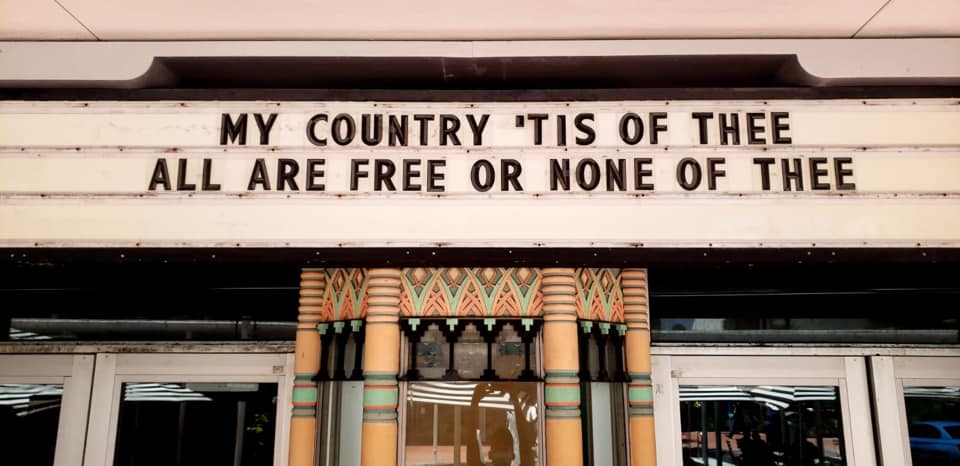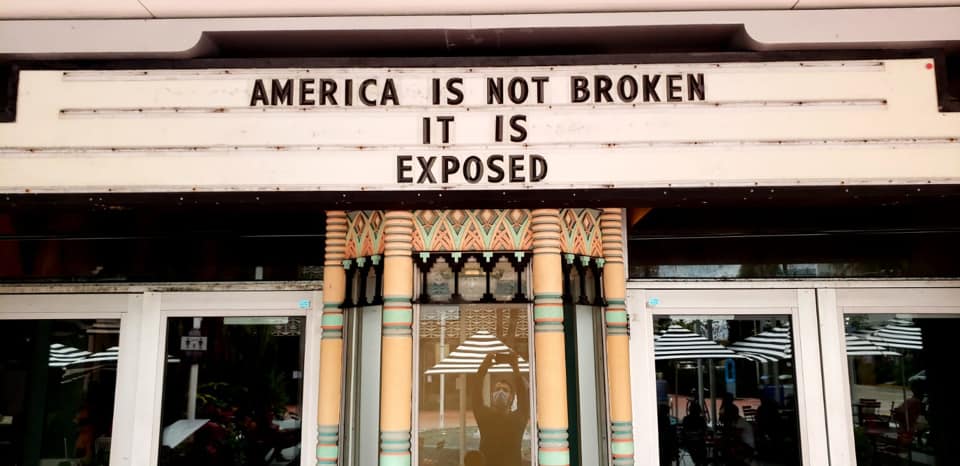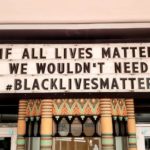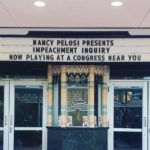Amid a global pandemic, people all over the world have taken to the streets to proclaim that Black Lives Matter. The chain reaction set off by the murder of George Floyd at the hands of police officers in Minneapolis in late May isn’t just about that incident, of course. The video of his killing brought to light not only the long-standing problem of police brutality but the underlying inequality and racism that still afflicts the nation’s Black communities. This call to action has been met by protests in all 50 states as well as all over the world.
Here in Miami, largely peaceful protests have occurred almost every day for over three weeks, with no signs of abating. Activists have continued to march in neighborhoods throughout South Florida, occasionally clashing with police. But on a recent weekend, the clash in South Florida was not just between protesters and police. In a sign of the deep rift that has divided our country, our streets have seen marches both in support of the Black Lives Matter movement and in support of President Donald Trump and a counter-movement proclaiming that “All Lives Matter” and “Blue Lives Matter.” Sybrina Fulton, the mother of Trayvon Martin, joined hundreds of protesters in downtown Miami to demand racial equality, while nearby dozens of police supporters waved American flags and Trump 2020 signs, chanting, “We support the police!” at Bayfront Park in downtown.
Only steps away from where Miami Beach saw its biggest Black Lives Matter protest, one Miami theatre company is showing their solidarity with the movement: Miami New Drama is letting their marquee do the talking. Since becoming the resident theatre company of the Colony Theatre in 2016, Miami New Drama has used the historic theatre’s marquee to be a voice for the community actively responding to national and international crises.
“Immediately after I got the keys to the Colony Theatre, which was in October of 2016, Donald Trump got elected,” recalled artistic director and company founder Michel Hausmann. “I have always had a strong belief that artists shouldn’t only have a seat at the table, they should help lead the national conversation. We happen to be located in one of the busiest pedestrian boulevards in America. Eleven million people every year cross in front of the Colony Theatre, and I wasn’t going to let go of that opportunity to continue the artist’s conversation with an audience.”
Indeed, this is not the first time the theatre has used its voice to speak about injustices. Woven into the fabric of Miami New Drama is its duty to produce work that gives a voice to theatremakers who Black, Indigenous, or people of color (BIPOC). Founded by playwright and director Hausmann and playwright/director Moisés Kaufman, Miami New Drama is a nonprofit professional theatre company committed to artistic excellence and groundbreaking work unique to the diverse city of Miami, with a vision of theatre as a powerful form of social engagement.
While the theatre is currently closed due to the COVID-19 pandemic—the Louis Armstrong bio-musical, A Wonderful World, that was running in March had to cut is run short—Miami New Drama can use its marquee as a venue for some of the nation’s brightest playwrights to voice their opinion.
“Something I adore about our marquee is that you can fit about 140 characters, so it really is like the length of a tweet,” said Hausmann. “A lot of the national conversation, for good or for bad, is being pushed by a sentence or two from the occupant of the White House. This felt like a nice way to respond in sort of the same language. It is very theatrical, right? It is a tweet being performed by a theatre building.”
The marquee’s author for the last four years, Hausmann, knew that it was important to give Black theatremakers the space to vocalize their thoughts. Before George Floyd’s murder, the plan had already been to give BIPOC theatremakers the chance to take it over, but for now it feels more appropriate to center specifically Black theatremakers. For while it is always important to acknowledge the ways that white supremacy has oppressed and excluded Indigenous, Hispanic, Black, and brown people, this moment is rightly about the Black Live Matter movement.
So until further notice, each Monday, nationally and locally recognized Black playwrights, writers, and poets, including Aurin Squire, Lowell Williams, and Aja Monet, will be given unbridled and uncensored access to voice their thoughts in big black letters on the Colony Theatre sign.
The first week featured messages from Squire (A Wonderful World, Confessions of a Cocaine Cowboy, TV’s This is Us and Evil), pointedly and openly criticizing opposition to the BLM movement. Wrote Squire: “If a protestor’s knee is more offensive than a killer’s, you don’t love God or Country,” and, “America is not broken, it is exposed.”
The first message from playwright, actor, and teacher Lowell Williams, paraphrasing Emma Lazarus, is, “My country ’tis of thee, all are free or none of thee.” A picture of the marquee is posted on Miami New Drama’s social media page on Instagram. The comment under it reads, “Protect Black Women. Protect Black Trans Women.”
This is not an empty promise of solidarity. Miami New Drama’s productions speak to its mission. The company was founded to create plays featuring diverse, multicultural voices and faces. In their short existence, their shows so far have included One Night in Miami, which told the story of the fight that put boxing champ Muhammad Ali on the map, even at time when he was unable to stay in Miami Beach because of Jim Crow-era segregation laws. But even that production offered a learning experience for Hausmann.
“We were doing One Night in Miami, about a fight that takes place three blocks from the theatre, but the whole action takes place at the Hampton House, which is a 15-minute drive from the theatre,” Hausmann recalled. “It really just hit us. We all knew that Miami Beach was segregated, but then it was like: Oh, this theatre was segregated then. So we commissioned a plaque to be installed remembering that this theatre you are now entering was segregated. Thank God it is not anymore, but this is its history—we can’t hide from it.”

Miami New Drama recognizes that as an organization they can and must do more. Their website spells out in detail their commitment to anti-racism, in which they write, in part, “From within the walls of our beautiful historic Colony Theatre, which not too long ago was a segregated venue, we ask, what can we do to engender, foster, and support meaningful and lasting progress?” They list action statements and urge other theatre companies, associations, and journalists to do more than simply write a statement of solidarity, but to similarly follow it with action.
In such a divided time, amid dueling protests and contrasting visions of our nation, Miami New Drama wants to make sure they have drawn the line in the sand quite clearly. They commit to do better because Black Lives Matter. This is just the beginning of an unfolding revolution. We all need to continue to use our voices to denounce injustices, whether it’s on a theatre marquee or in an online theatre article. If you ever wondered what you would have done during slavery, the Holocaust, or the Civil Rights Movement—you are doing it now.
Cristina Pla-Guzman is a writer and educator based in Miami.









